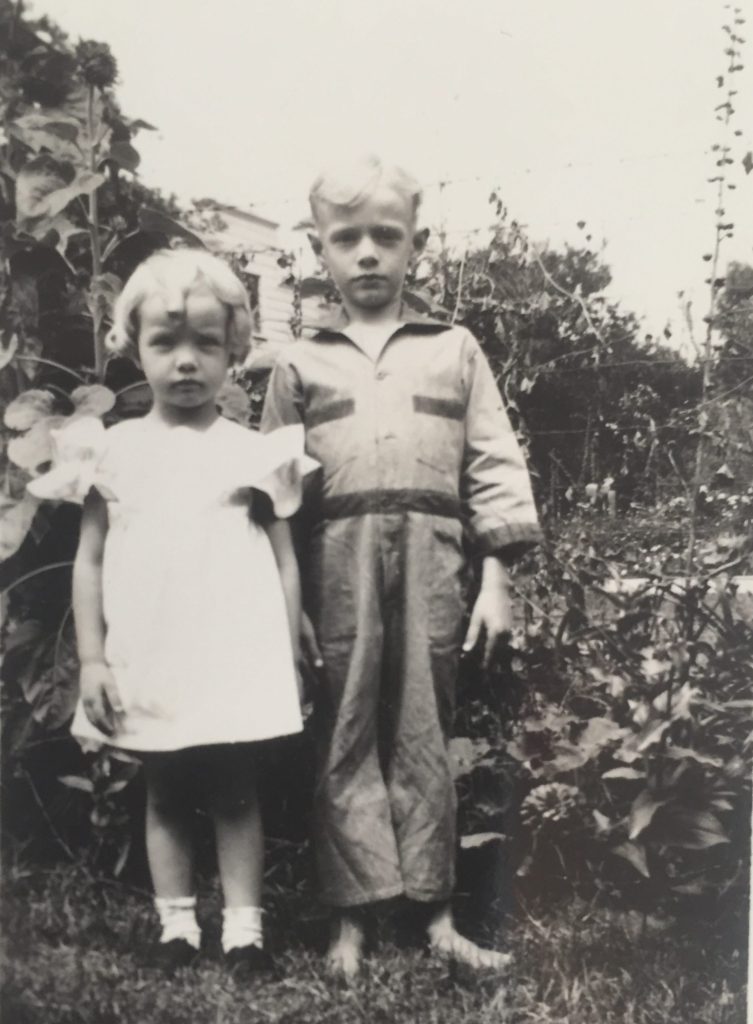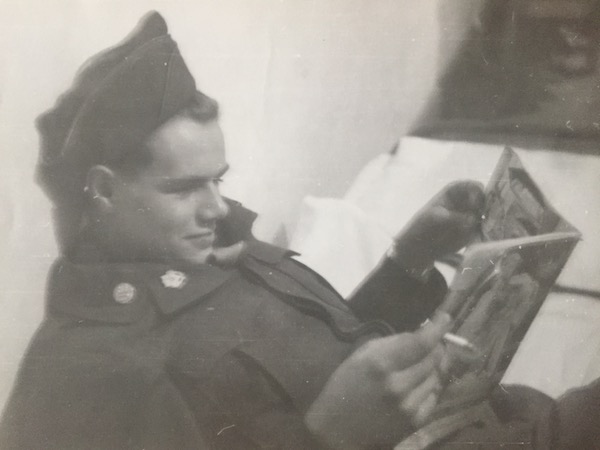Memorial Day Week- because sometimes you need more than a day…
When her only brother went off to the Korean War as a medic, my mother was a junior in high school, like my youngest daughter is now. My mother and her family lived in the small town of Geneseo, Illinois, southwest of Chicago, near Davenport, Iowa. Born late in the lives of my grandparents, James Gerold Bishop was Mother’s only sibling.
Until my mother’s recent death I hadn’t thought how deeply this loss affected her young life. She only talked about her brother in brief outbursts, then tears overtook her, as if she were experiencing his death all over again.
This mystified me. It was so long ago. How could it still affect her so dramatically? Each time she talked about it, she seemed like a severely wounded animal.
As a child of 10, I remember awakening one night to the cacophony of her playing both the piano and the organ at the same time, which were at right angles to each other in our open dining room. I peeked out from the sliding pocket door that separated the hallway to my bedroom and watched as my mother sang. Every now and then she’d stop to toss handfuls of something in the fire. I crept closer, unnoticed, and felt the heat of the flames eating up old photos, pictures of her only brother.
Not long before this night, my mother had given birth to my half-brother. She named him after this uncle I’d never know.
My stepfather came out of the bedroom in his pajamas and tried to coax my mother back to bed. Suddenly enraged, she grabbed the keys to her maroon Plymouth Fury, then ran out the door. My stepfather ran after her, lifting the garage door just in time to keep it from getting torn from the hinges. He came back in, glanced at me, and called the police.
I didn’t see my mother again for several weeks. She’d had a vacation, she said, showing me an ash tray she’d crafted from coils of clay. But my mother hated smoking and boasted that no cigarette had ever touched her lips. In the early 70s her “vacation” was due to a “nervous breakdown.” Looking back, I think postpartum depression presented itself in her as mania. She always seemed restless, a bit “flighty,” or “high-strung,” terms I heard others use to describe her over the years.
Five years after her death, I find myself still attempting to reassemble a whole picture of my mother, to glue her back together. This piece–of her only brother going off to war, then missing in action, the family learning he’d been shot, forced to march a long way on a leg with gangrene, then a dying a painful, lonely death– shadowed my mother’s early adult years.
Recently, I went through her yearbooks and her wedding album: she went to prom, got engaged, a year later married my father, all against the backdrop of her brother missing in action. Perhaps with a desire to enjoy her senior year, engagement and newlywed life, she didn’t allow herself to grieve the loss of her only sibling. By then she was the only child of aging parents.
My grandmother, Lillian Mathilda Stahl, was 41 when she had her first and only son. My grandfather was 49 when this son was born, in his early 70s when he learned his son would not come home alive, or at all. His body was never recovered.

It is only one death, one story of so many we briefly memorialize on this day, or this week. The effects of war and its losses run through the lives of many generations in big and small ways, upending lives beyond the ones lost, devoured by the gruesomeness of war.
“Awareness of death can catapult us toward joy and reflection,” Mary Pipher writes in Women Rowing North. But when death happens behind enemy lines, or in places we have no access to, as it did for many during the pandemic when no one was able to gather, death submerges itself in the unknown nooks and crannies of our minds becoming a shadow following us through life.
Writing and remembering is about coming out from under the shadows into the joy of living and loving beyond the grave. I love this uncle I never knew. As I look at pictures of him with his little sister, my mother, I realize how much this one life, given over, means. And I find myself mourning, in small moments, what might have been.
What shadows follow you? Have you written about them?



Comments are closed.